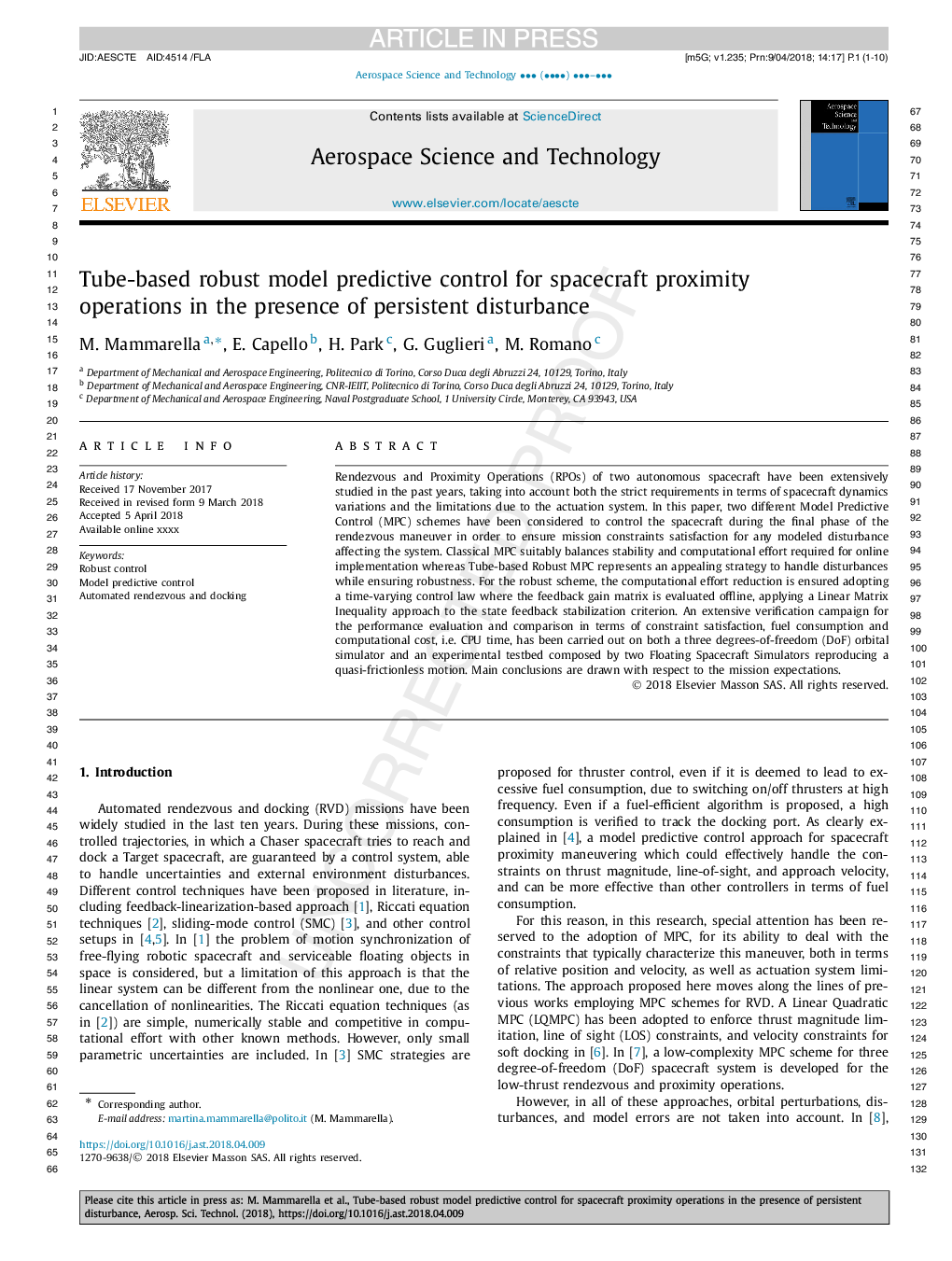| Article ID | Journal | Published Year | Pages | File Type |
|---|---|---|---|---|
| 8057738 | Aerospace Science and Technology | 2018 | 10 Pages |
Abstract
Rendezvous and Proximity Operations (RPOs) of two autonomous spacecraft have been extensively studied in the past years, taking into account both the strict requirements in terms of spacecraft dynamics variations and the limitations due to the actuation system. In this paper, two different Model Predictive Control (MPC) schemes have been considered to control the spacecraft during the final phase of the rendezvous maneuver in order to ensure mission constraints satisfaction for any modeled disturbance affecting the system. Classical MPC suitably balances stability and computational effort required for online implementation whereas Tube-based Robust MPC represents an appealing strategy to handle disturbances while ensuring robustness. For the robust scheme, the computational effort reduction is ensured adopting a time-varying control law where the feedback gain matrix is evaluated offline, applying a Linear Matrix Inequality approach to the state feedback stabilization criterion. An extensive verification campaign for the performance evaluation and comparison in terms of constraint satisfaction, fuel consumption and computational cost, i.e. CPU time, has been carried out on both a three degrees-of-freedom (DoF) orbital simulator and an experimental testbed composed by two Floating Spacecraft Simulators reproducing a quasi-frictionless motion. Main conclusions are drawn with respect to the mission expectations.
Related Topics
Physical Sciences and Engineering
Engineering
Aerospace Engineering
Authors
M. Mammarella, E. Capello, H. Park, G. Guglieri, M. Romano,
